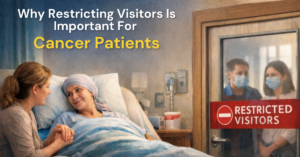Many research studies confirm that about 70% of caregivers make medication-related mistakes, which results in various complications in a patient’s treatment plan. Even small mistakes like missing a dose or giving the wrong medication can cause a lot of trouble for the patient. These errors often occur because caregivers don’t fully understand the possible side effects, the correct duration of treatment, or when to start each medication. Whether you are a professional caregiver or a family member caring for a patient, it is essential to organize a patient’s medication with great care. This not only helps the patient to avoid complications but also helps in faster recovery process. Caregivers must understand basic care skills and do’s and don’ts of medication management to keep their patients safe.
Why Medication Management Matters
People with chronic health conditions and older adults often need to take several medications every day to manage their symptoms. A lack of organization and monitoring increases the risk of missed doses, overdoses, and dangerous drug interactions. A good medication management plan ensures:
- The patient takes the right medicine, in the right dose, at the right time.
- Reduces side effects and complications.
- Helps maintain stable health and recovery.
Do’s of Medication Management
1. Understand the Medications
Caregivers must carefully read and follow doctors’ instructions, ensuring the correct
dosage and timing. This is especially vital in care at home, where medical supervision is limited.
Before assisting with medications, make sure you know:
- The name of each medicine (brand and generic).
- The purpose of the medication.
- The correct dosage and timing.
- Possible side effects and allergic reactions.
- Special instructions, such as taking with food or avoiding certain activities.
The easiest way to stay organized is to keep a simple medication list. Write down each medicine’s name, dose, and how and when it should be taken. Don’t forget to include over-the-counter drugs, vitamins, or supplements. Keeping this list updated will help you avoid mistakes and give you peace of mind knowing your loved one’s treatment is on track.
2. Follow the 5 Rights of Medication Administration
To prevent mistakes, always check the Five Rights before giving any medicine:
- Identify the right patient – Confirm the patient’s identity.
- Double-check the name of the right medicine.
- The right dose – Ensure that the amount is correct.
- At the right time – Give the medicine on schedule.
- It is essential to ensure that the medication is taken in the right way (oral, injectable, topical, etc.).
3. Organize and Store Medications Properly
Keeping medicines well-organized and stored in the right place makes daily caregiving much easier and safer. When medicines are scattered or mislabeled, it’s easy to miss a dose or take the wrong one by mistake. The following are some simple tricks to help you keep them organized:
- Use a pill organizer or medication chart for clarity and organization.
- Medicines should be stored together in one place and in their original containers, labeled.
- Medicines should be stored in a cool, dry place unless refrigeration is needed.
- Never mix pills from different prescriptions in one bottle.
- Check the “expiration” or “use by” date of all medicines.
- Keep medicines out of reach of children and pets.
- Be sure to dispose of any leftover medication properly.
4. Set Reminders and Track Doses
Missed doses are common, especially when multiple medications are involved. To avoid this:
- Set alarms or use phone reminders to help you remember medication times.
- Maintain a medication log and check off each dose as it is administered.
- If a dose is missed, follow the doctor’s instructions—do not double the next dose unless advised.
5. Watch for Side Effects and Reactions
Many older adults and people with long-term health conditions need to take several medicines each day. While these medications help manage their symptoms, they can sometimes interact with each other and cause unwanted effects. As we age, our bodies handle medicines differently — the liver and kidneys may not clear them as quickly, and changes in body fat and muscle can also affect how drugs work. Because of this, seniors are more likely to experience side effects or other medication-related issues, making careful monitoring especially important.
Some medications may cause:
- Allergic reactions (rash, swelling, difficulty breathing).
- Nausea, dizziness, Muscle Weakness, or unusual behavior.
- Confusion, Depression, Insomnia, or Falls.
- Changes in appetite, sleep, or mood.
Action: If you notice severe side effects or the patient seems unwell after taking medicine, contact a healthcare professional immediately.
6. Communicate with Healthcare Providers
Try to accompany your loved one to doctor visits whenever possible. It’s a great way to stay informed about which medicines have been prescribed and the reasons behind them. During each visit, make sure the doctor and pharmacist know about:
- All medications and supplements the patient takes. Be sure to bring a list of all your prescriptions and non-prescription medicines. Show the provider the pill bottles if possible.
- Any changes in health or the development of new symptoms.
- Concerns about cost, side effects, or difficulty swallowing pills.
Don’ts of Medication Management
1. Don’t Mix Up Medications
Avoid combining pills in one unmarked container. This can easily lead to dangerous errors in care at home.
2. Don’t Stop Or Change Medicines Without Approval
Even if a patient seems better, never discontinue medication without consulting their doctor.
3. Don’t Ignore Special Instructions
Some medicines must be taken with food, while others need to be taken on an empty stomach. Skipping these details reduces its effectiveness and may cause harm.
4. Don’t Leave Medications Within Easy Reach
Seniors with memory issues may accidentally take extra doses. Safe storage is a must in in-home adult care.
5. Don’t Forget The Bigger Picture
Medication is just one part of overall patient or elderly care. Balance it with nutrition, exercise, companionship, and regular check-ups.
6. Don’t Run Out
Running out of medicines can interrupt treatment and put your loved one’s health at risk. Try to refill prescriptions a few days before they run out, and set reminders on your phone or calendar to stay on track. Keeping a small backup supply, if your doctor allows it, can also help prevent missed doses during weekends or holidays.
When to Seek Immediate Help
Call a doctor or emergency services if the patient:
- Takes the wrong medication or an overdose.
- Shows signs of a severe allergic reaction.
- Experiences sudden breathing problems, chest pain, or loss of consciousness.
Managing medications is not just about giving pills, it’s about ensuring safety, consistency, and communication. Caring for seniors requires utter patience, open communication, and gentle reminders to ensure that medications are taken on time. Seniors often resist taking medications due to bad taste, side effects, and forgetfulness. Following these guidelines properly will help you manage medications, and prevent any mistakes related to medication, keeping your patient healthy and stable.
References & Trusted Resources
Aragaki D, Brophy C. Geriatric pain management. In: Pangarkar S, Pham QG, Eapen BC, eds. Pain Care Essentials and Innovations. Philadelphia, PA: Elsevier; 2021:chap 10.
Naples JG, Handler SM, Maher RL, Schmader KE, Hanlon JT. Geriatric pharmacotherapy and polypharmacy. In: Fillit HM, Rockwood K, Young J, eds. Brocklehurst’s Textbook of Geriatric Medicine and Gerontology. 8th ed. Philadelphia, PA: Elsevier; 2017:chap 101.
Preveill LA, Heflin MT, Cohen HJ. The aging patient. In: Wing EJ, Schiffman FJ, eds. Cecil Essentials of Medicine. 10th ed. Philadelphia, PA: Elsevier; 2022:chap 126.
Caregiving – medication management: MedlinePlus Medical Encyclopedia. https://medlineplus.gov/ency/patientinstructions/000952.htm
Caregiver Medication Management and Understanding After Pediatric Hospital Discharge https://pmc.ncbi.nlm.nih.gov/articles/PMC6818354






